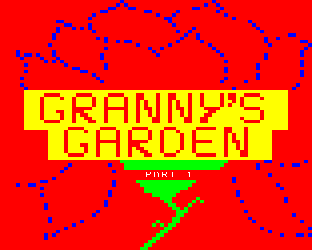
Last week I wrote about the first computer I ever owned, the Sinclair ZX81. My next step in the computing journey came with the opposition: Acorn’s BBC Micro.
The story of the BBC’s origins was at the heart of the recent Micro Men drama. To cut it short, Acorn won the battle over Sinclair to get the contract to produce a computer branded with the British Broadcasting Corporation. Thank to this, the Micro was given national advertising through its inclusion in the shows The Computer Programme, Making the Most of the Micro and Micro Live. With BBC backing, the machines were also in hot demand among schools.
While many of my peers preferred Sinclair’s follow-up, the Spectrum range, I was destined to be a user of the BBC. That’s partially because I was at a primary (elementary) school which was “lucky” enough to have several computers: indeed, we even had a dedicated computer room. But I was also a BBC user because my mother was a teacher and could thus bring it home on weekends and during vacations.
Read up on the specs of the BBC Micro and you’ll learn all about the improved memory (ranging from 16k to 128k across the range), or the ultra-convenient RAM expansion slot which was built into the keyboard. While the costs were hardly comparable, the process was no more complex than using a USB memory stick with Vista’s ReadyBoost system.
But what the specs don’t tell you is that by far the most notable hardware element of the BBC was that it was indestructible. Forget today’s hype about titanium laptops which can survive the dust and extreme temperatures of an Afghan desert. The BBC Micro was made of a rugged plastic which could survive the hostile environment of a boisterous classroom. You can argue all you like in the Spectrum vs BBC stakes, but if you dropped a Spectrum on a BBC from 12 inches, then reversed the process, the Spectrum loses every time.

What then made it worthwhile was that the turtle had a slot in the center for a downwards facing pen. PENUP and PENDOWN, along with the movement controls, were all you needed to learn to draw shapes or messages on a large sheet of paper… or on the floor, in permanent marker, if you had a careless teacher. The brilliance of the turtle was that in order for naughty children to write “bum” and then point out “it wasn’t me who wrote it, it was the turtle”, they had to first learn how to do so.
The popular perception of the BBC is that it was a mainly educational tool and failed against the Spectrum because it didn’t have enough games. That doesn’t seem right to me. For one thing, I seem to recall many, if not most, Spectrum games were also available on the BBC with – in my memory at least – far more available on ‘proper’ floppy discs. Then again, the BBC disk drive may simply be more memorable for the fact that if you made this mistake of asking the computer to read from it when the drive was empty, the resulting sound was something akin to a kitten passing through the gates of hell and being so fearful that it choked on its own tail.
The BBC was also the original home of Elite, arguably the pioneer in the concept of open-ended gaming. It featured a universe of planets which were randomly created on the fly, meaning no two gamers had the exact same experience. As well as combining two genres: flight simulation and strategic trading, it had no fixed storyline or goals. With most games of the time rigid platform affairs, it was a groundbreaking example of something resembling a sandbox game.
It was also, in my experience, a boring waste of time. But that might just be me.

That only leaves one thing to mention about the BBC, and that’s the soundtrack on the game Hyper Sports. Forget everything you hear from modern consoles: when you take into account the technical limitations of the machine, Martin Galway’s take on Vangelis’ Chariots of Fire theme is the most stunning piece of computerized music ever written, and I give thanks to the wonder of the internet that it is available for listening on Youtube today!
